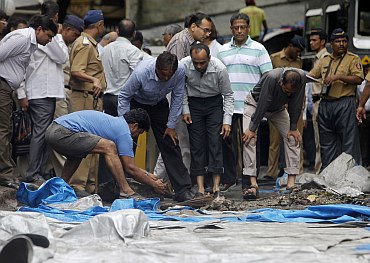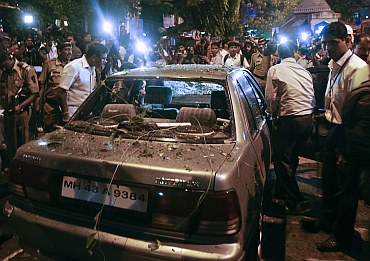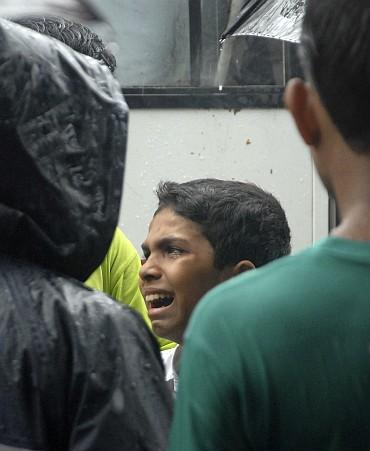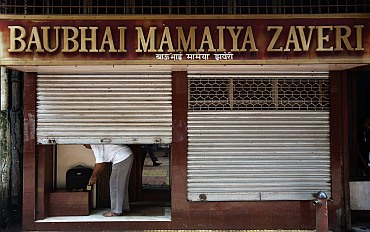
Vicky Nanjappa discusses the enormous security threat that fringe groups pose and why it's extremely difficult to track and tackle this new terror phenomenon.
The investigations into last week's serial blasts in Mumbai, that have claimed 20 lives so far, have shown that the emergence of smaller terror modules cannot be ignored.
Karnataka Home Minister R Ashok on Wednesday recommended a ban on an outfit called the Karnataka Forum for Dignity on the ground that 'it was turning into a notorious organisation and could be involved in incidents pertaining to terror.'
On Tuesday, the agencies which are investigating the blasts said that the incident could have been the handiwork of smaller groups and the operation was carried out by six to 10 persons.
The question that needs to be asked is: If this has marked the end of bigger terror outfits in India, will fringe operations such as these be carried out by self-motivated groups?
...

It seems assembling a bomb, planning the attack and executing it have become extremely easy for these groups.
The bigger outfits are easier to curtail when compared to these smaller groups, sources in the Intelligence Bureau point out.
Bigger outfits execute operations on a larger scale and there is always a lot of planning that goes into such an operation. The Lashkar-e-Tayiba, which is very meticulous in its planning, stood completely exposed post the 26/11 attacks on Mumbai and this was largely because several intercepts were picked up thanks to the operatives communicating over phone and also sharing emails.
Moreover, such outfits, apart from causing a great deal of damage, also have particular messages to send out. The messages are always on a large scale and would deal largely with the ties between two countries.
Hence, at some level they would want to announce responsibility for a particular attack. The case of the Indian Mujahideen was the same and after each attack they raised volatile issues such as the 2002 Gujarat riots or the Babri masjid demolition.

This is, however, not the case with smaller groups. They believe in a quick fire operation. All they look for is some destruction to satisfy personal grouses. There is always a set of disgruntled youth who want to take revenge on the police for some arrests made.
There is no larger political or ideological agenda in their attacks. Apart from seeking revenge they also want to expose the vulnerability of the security apparatus which in turn causes a great deal of embarrassment for the police.
Smaller groups are also aware that they are not on the intelligence radar and hence their movements are not restricted.
There is no previous record on these men which only makes the job easier for them. They have easy access to the material and hence preparing a bomb too becomes very easy for them.

This is a growing risk, security experts say.
"What can anyone possibly do if a group of five persons plan an attack in their house and then plant the bomb? They have not used mobile phones or emails which again makes it next to impossible to track them. These people are not even taking orders from anyone and such operations are planned without the approval of any large force," an expert says.
Experts also say this is the main reason why the police continue to grope in the dark. It could be a small group which subscribes to the ideology of the Indian Mujahideen or another group from the second rung of the underworld trying to put terror groups out of business.
It is very hard to tell in the absence of any record or dossier on such persons, and this without a doubt is becoming a major security threat, they say.
Intelligence alone will not help solve this problem since it is difficult to pick up intercepts on such operations. Constant monitoring of crowded places and proper security measures such as better policing and more CCTVs will provide a solution in dealing with such fringe groups who carry out strikes at will, they add.